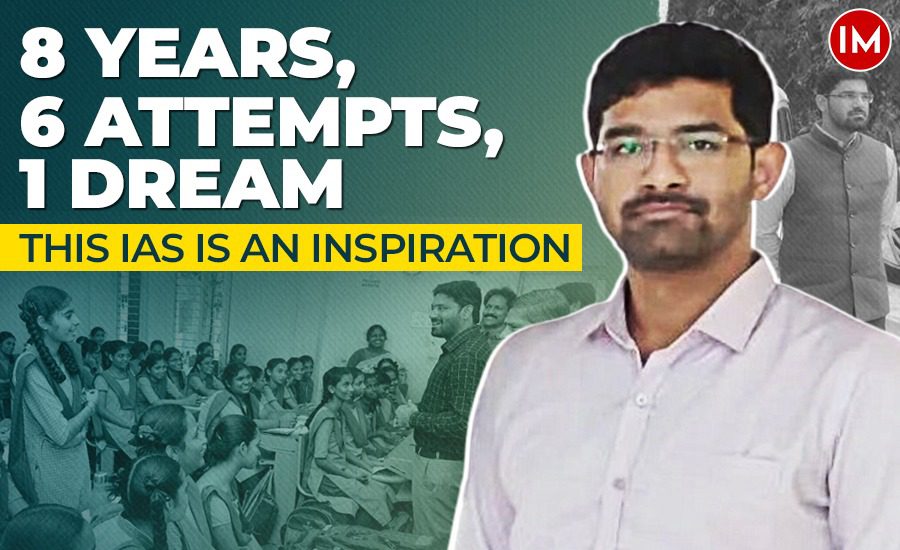Cracking the prelims exam in all six attempts, yet failing the mains in his first four, and then falling short in the interview during his fifth attempt, was a struggle unlike any other for this determined IAS officer. He faced moments of discouragement and sadness throughout his UPSC journey, but he never lost his composure or hope. His unwavering desire to serve the common people, coupled with immense willpower, fueled his persistence. Finally, with a revised strategy in his last attempt, he achieved his dream of becoming an IAS officer.
Meet T. Rahul Kumar Reddy, an IAS officer of the 2020 batch, who is now making a significant impact in the lives of people, especially in rural areas. From improving paddy procurement in West Godavari, Andhra Pradesh, to implementing tech-driven land record management for farmer-centric reforms, and launching the Akshara initiative to donate books, he is actively contributing to the welfare of the community. His journey has been full of ups and downs, but today, Mr Rahul is wholeheartedly dedicated to serving the people and making a meaningful difference in their lives.
Indian Masterminds recently had the privilege of interacting with Mr Rahul, the Joint Collector of West Godavari district, to gain deeper insights into his inspiring journey and the impactful initiatives he’s driving.
Read Also: How Andhra’s West Godavari is Setting New Standards in Paddy Procurement & Land Management
JOURNEY SO FAR
Mr Rahul made a total of six attempts in the UPSC Civil Services Examination and triumphed in his final attempt. His journey began with his first attempt in 2013. In all of his attempts, he successfully cleared the prelims but struggled to clear the mains until his fifth attempt. In UPSC CSE-2017, he faced the interview for the first time but narrowly missed the final list by just four marks.
After five years of setbacks, he decided to reassess his strategy. He took a break in 2018 to refocus, and in his final attempt in 2019, he achieved success, securing an impressive All India Rank of 117.
His dedication paid off, and in 2021, he was posted as the Assistant Collector (U/T) in Andhra Pradesh’s Godavari district. He went on to serve as Assistant Secretary in the Ministry of Fisheries, Animal Husbandry & Dairying, Government of India. Following this, he took on the role of Sub Collector & Sub Divisional Magistrate in Tekkali, Srikakulam, Andhra Pradesh. His career progressed further as he served as the Joint Collector & Additional District Magistrate of Nandyal District in Andhra Pradesh until 2024.
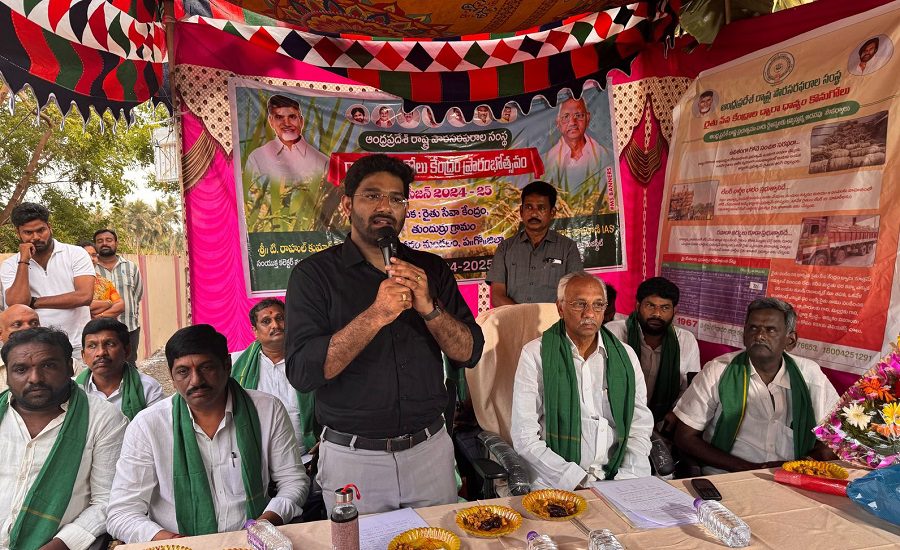
INTERVIEW SUGGESTIONS
As the UPSC Civil Services Interview 2025 is currently underway and the IFS interviews are scheduled between April 21 and May 2, 2025, he advised aspirants, “One thing I must emphasize is that the interview process is a polite, cheerful conversation with like-minded individuals – people who belong to similar fields, such as civil servants. There’s no need to put unnecessary pressure on yourself. Be natural and genuine. Focus on your Detailed Application Form (DAF), particularly your hobbies, background, and education. Stay updated with current affairs, as they play an important role in the interview.”
He further advised, “Always remember that the interview is more about having a respectful and candid conversation with your seniors in the service. Answer the questions cheerfully and openly. Since you’ve already cleared the mains, they’re primarily assessing your personality.”
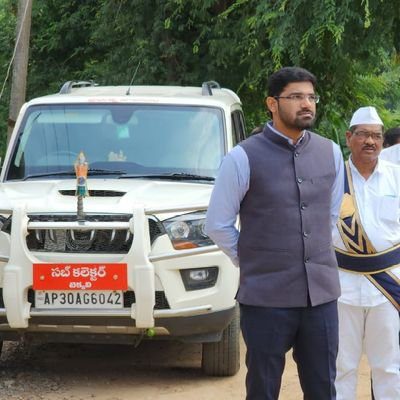
BACKGROUND & UPSC PREPRATION
Mr Rahul hails from Kadapa district, located in the Rayalaseema region of Andhra Pradesh. He completed his basic education up to the 10th grade in his hometown, before moving to Tirupati for his 12th grade, which he completed at Narayana College.
He then pursued a B.Tech in Electronics from Sri Venkateswara University, Tirupati, graduating in 2012. After completing his degree, he moved to Delhi to begin his UPSC preparation.
Rahul’s UPSC preparation was rigorous and consistent. He focused on deep understanding rather than rote learning. After struggling with Geography in his first three attempts, he switched to Political Science, which gave him renewed clarity. Prioritizing current affairs and maintaining a disciplined approach, his resilience and strategic changes led to success in his final attempt.
He himself said, “I couldn’t make it with Geography, which is why I changed the optional.”
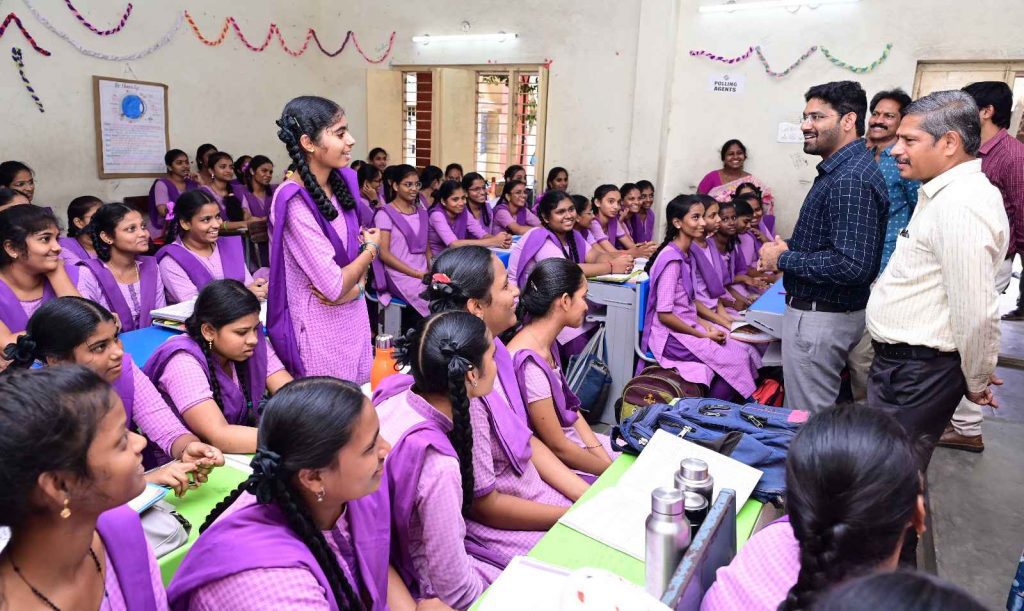
AKSHARA INITIATIVE
Mr Rahul initiated a project called AKSHARA, which encourages people to donate books they no longer use. The idea is simple – many of us have books that we’ve already read and are lying unused on shelves. Instead of letting these books gather dust, the initiative encourages people to “pull up” or donate them to libraries. These donated books can then be used to build small libraries in government hostels, providing students with access to valuable resources. AKSHARA aims to foster a culture of sharing knowledge and creating learning opportunities for students in under-resourced areas.
BHAVYA BHIMAVARAM
Bhimavaram is known for its affluent residents who often contribute to community welfare. Inspired by this, Mr Rahul launched an initiative to pull CSR (Corporate Social Responsibility) funds from these individuals to support the welfare of the local population. The idea behind this initiative is to create a collaboration between district administration and donors, focusing on the development of infrastructure such as parks and other community spaces.
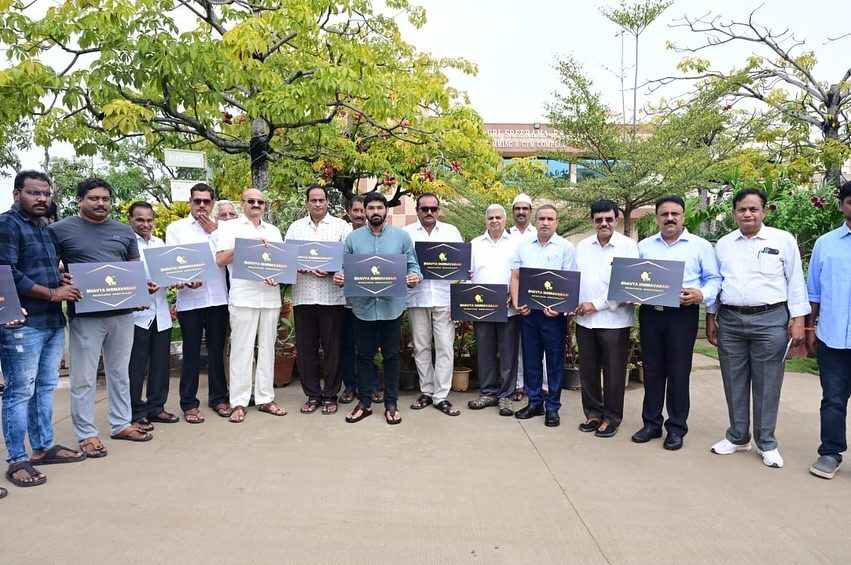
The administration is already working on several projects, including the development of hobby clubs, bus stops, and green spaces in the town. Mr. Rahul shared, “Bhavya Bhimavaram is a community-driven project aimed at creating green spaces and infrastructure. In partnership with local organizations, we’re developing parks with sports facilities, gym equipment, walking tracks, and renovating the old bus stand. Bhimavaram thrives on community participation.”
Mr Rahul expressed optimism for more involvement from the people of Bhimavaram in developing green spaces, beautifying road margins, improving junctions, and enhancing social infrastructure like bus stands, street lighting, footpaths, relaxation areas, and eat streets. He concluded with a quote by Helen Keller: “Alone, we can do so little; together, we can do so much.”
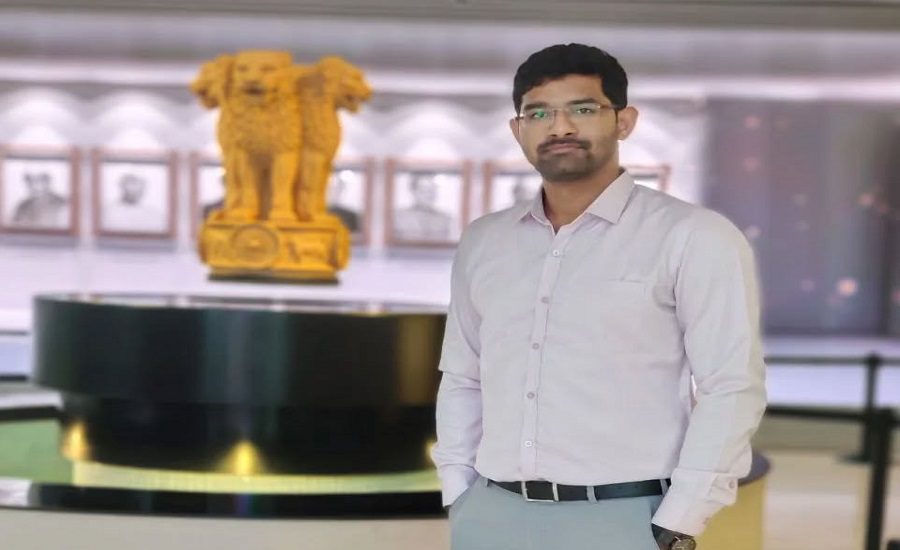
SUGGESTIONS
Giving suggestions to UPSC aspirants, he said, “This exam requires hard work, perseverance, and consistency. The key to success lies in proper planning, as this exam can be highly unpredictable. Therefore, complete dedication is essential. Personally, I don’t expect everyone to give as many attempts as I did, but if you are truly committed, at least two or three attempts should be given your 100% effort. Learning from seniors and those who have succeeded in this exam is invaluable. The toppers, who have excelled, can offer great insights and help you overcome your own mistakes by learning from their successes. That’s exactly what I did in my last two attempts.”

